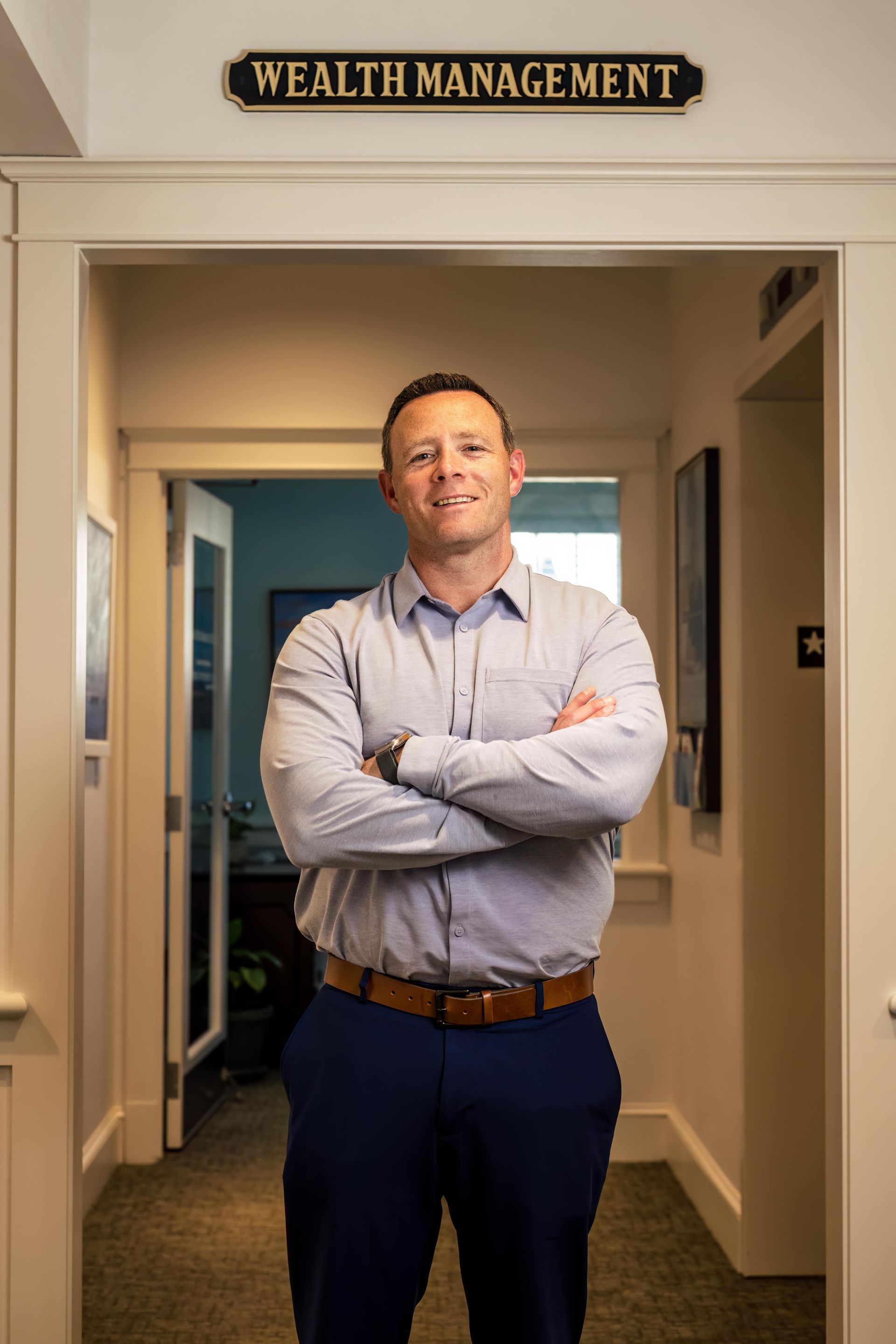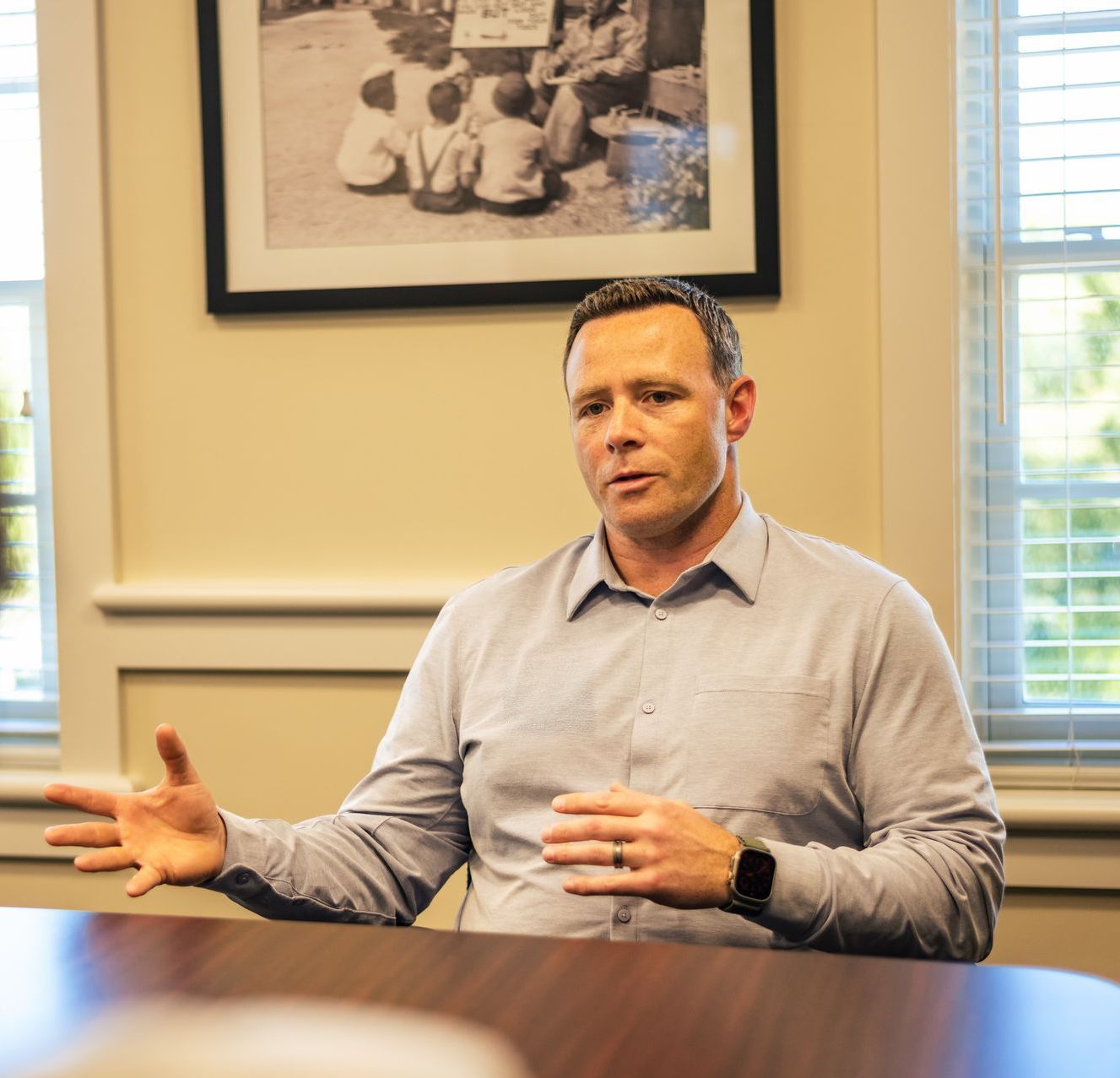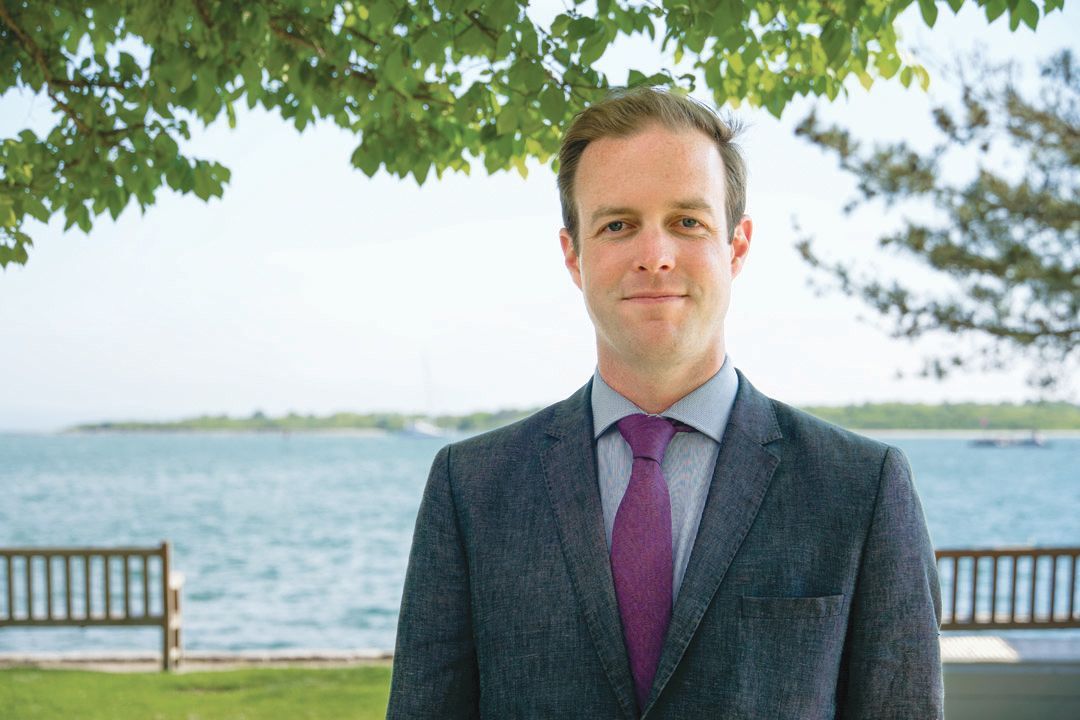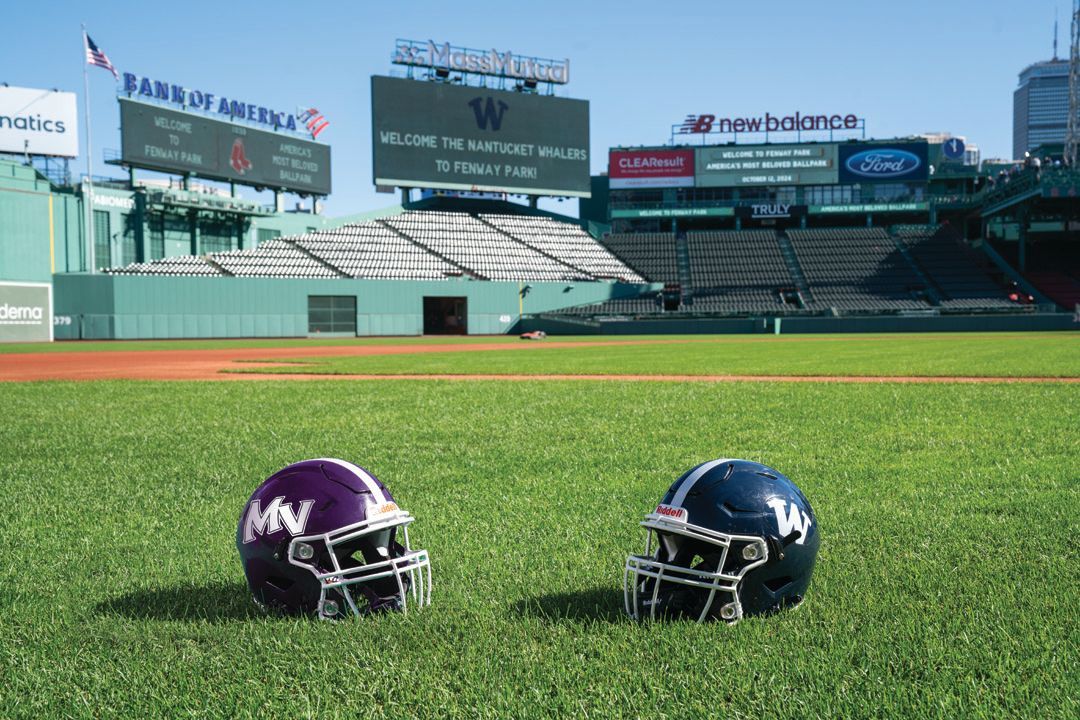BANKING ON THE FUTURE
Cape Cod 5 CEO Matt Burke on the United States’ economic market and the direct effect on island.

Could you explain your connection to Nantucket?
This is actually our first time staying overnight, but I come here often for the bank. This is a very special place for us in terms of the market, so even though I may not be here physically as much, the team is. I think, for us, physical locations are nice, but you need the people, and the team we have here is the best.
The bank was founded in 1855. How long has Cape Cod 5 been on Nantucket?
About 15 years ago Bill Hourihan was instrumental in establishing our presence. You’re not going to find too many more successful examples of this organic de novo expansion. We now have about a third of the market share.
The interest rate world has changed dramatically. What are you noticing on the island in terms of types of transactions that have been impacted by the sudden surge in interest rates on the homeownership side?
We’ve seen the fastest, most significant increase in interest rates that we’ve ever seen to combat inflation, but what that does is put a lot of pressure on consumers and on businesses. Cost of credit goes up and it puts a lot of pressure on banks. Credit is expensive on the lending front, and this is particularly impactful for the markets that we’re in— jumbo mortgages and second homes. So with jumbo [loans] and in second homes, Fannie [Mae] and Freddie [Mac] were taken out of the second home business—we either need to rely on our own portfolio or find other outlets, and there really aren’t many at this point. You can’t buy a house under the conforming limit, so there really aren’t any conforming mortgages out here.
The failure of First Republic Bank sent shock waves through many markets, not the least of which was here. And it shook people’s confidence in the banking business, particularly in the regional banks. What are your thoughts?
We live in a different world in terms of how fast our phones can move. We’ve learned more overnight; all those situations happened in an amount of hours. So, it’s all about preparing for that sort of thing. You obviously can’t plan for every scenario, but you can try to simulate some of these things.
A lot of it comes down to making sure you don’t put yourself in the position that those banks were in, which all goes back to risk management. As far as running a successful bank, it’s all about risk diversification and the concentrations that they have, asset liability management and industry risk— some of the more complex things that we deal with.
At one point, the thought was floated that if the government made every deposit insured, no matter what, you would never have a run on a bank. Is this a good idea?
We’ve seen a variation of that, and there was a lot of confusion. I think the media—and maybe everyone now—is interested in the next bank story and doesn’t have a background in banking. SVB [Silicon Valley Bank] failed, and this was a Friday. And FDIC said the next business day, Monday, you’ll have access to all your deposits, and they continued to run it. And people were still leaving even though their deposits for 100 percent were now insured.
Did the government fail to adequately communicate their role as a backstop?
Yes, and I think there’s an implicit guarantee and I think that was the sense, right? What is a systemic risk in the industry? That would have created something more systemic. I hear some of the stories of people that didn’t even know they were banking with SVB, but their payroll company did and employees weren’t getting paid. The messaging this time around was that not one penny of taxpayer dollars was going to be used to rescue banks. So all the banks collectively pitched in for a special assessment. It worked to an extent, but some of the reasons that I don’t necessarily agree with would be that, if all deposits were insured, that it would encourage risk taking. If I’m running a bank and I take risks, my depositors are protected, but if you have your investors and your employees, a bank failure would mean everything goes to zero.
Are there other SVBs and First Republics out there that have not surfaced?
One of the things of the business model of banking is that it predicates on the fact that everyone’s not going to want their deposits back at the same time. So you take deposits in, you lend them out and then it all comes back to liquidity management.
The reality of it is if you go up 500 basis points in interest rates overnight, your assets are going to be underwater. So it’s hard to generate liquidity. The Federal Home Loan Bank of Boston and the Federal Reserve are two very important [assets] for all banks to have as much availability of liquidity with that and pledging of assets. If you have something like that happen, you can generate cash, but this was not the case with SVB.
When does the other shoe drop?
We have a really high interest rate stress and then the liquidity phase, and then the next phase is the credit phase. So, a slowdown in credit, availability of credit and then, inevitably, rate increases upward. You model all this by saying we’re an asset-sensitive bank, meaning we benefit in rates up and our assets reprice up, but that assumes that the borrowers have the strength to actually pay higher service on that. Inevitably, and unfortunately, it’s going to put a lot of pressure on businesses and on banks.

This recession that has been projected is happening in slow motion. Do you think we will have one? And when do you think it’ll hit?
I’m glad I’m not an economist, because they’re always wrong. No one could have predicted anything that’s happened over the course of the past few years. So, it’s really hard. I get asked the question, what happened the last time that the economy was in the situation? What happens when you inject $7 trillion? Now we’re dealing with the consequences of that.
Time will tell if the outcome is actually worse long-term. We have front-row seats to affordability of everything, housing, inequality and all the issues that we’re already dealing with; it’s exacerbated all of them. If it continues to just be a slow bleed, then you don’t know what shoe is going to drop next. I don’t know how much higher interest rates can go before things start breaking to a larger extent than they are right now. All rates are expensive, so a further slowdown, I would assume, is inevitable.
Is there anything that you want to share about the bank that we should know?
Ultimately, what differentiates us is we’re a mission-driven mutual bank. So we don’t have any owners; we don’t have investors ... The value of being a mutual right now is that every penny of our earnings since 1855 is in our capital today. And we invest in our customers, communities, our employees and the mission, and then having people feel that this isn’t just a job. We’ve dealt with our fair share of challenges these past few years, but we are just fortunate that our bank is filled with really good people that all have shared values and dedication to the mission. Our mission is “simply enriching lives.” We try to do that in every way we can with our customers, our community members and our employees.
Latest Stories






